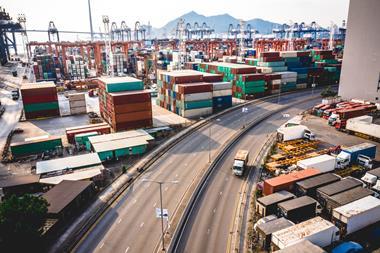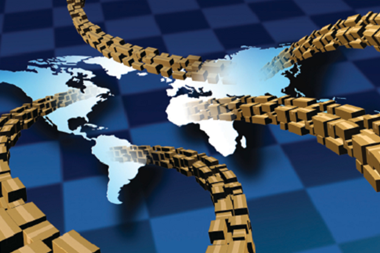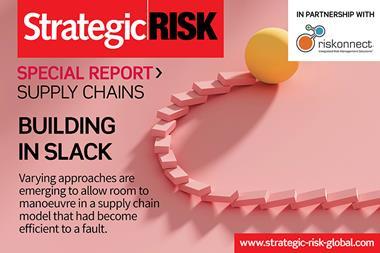Risk managers operating in a global world should ensure their organisations are ready to roll with the punches
A trio of experts came together in February to discuss the evolution of supply chain risk management after the disruptions of the past three years.
Whatever the strategy, it’s important to remember the fundamentals of effective risk management and to go in with your eyes open, they said.
“What we’ve learnt from the past two years is that we weren’t stress testing enough,” said Quin Rodriguez, VP of strategy and innovation, GRC, Riskonnect, addressing an audience of StrategicRISK viewers on 22 February. “Disruption is going to become a common term when we talk about supply chain.”
We are in a state of permanent crisis, explained Airmic CEO Julia Graham. Just as resilience is considered to be a continuous state which evolves over time, so too is the volatile nature of global risk.
“The frequency of what we once considered ’once in a generation’ events has shortened the process of change and increased the pace and scope at which crises can be triggered.”
“And in this complex and very connected world that we have today, a crisis in one part of the ecosystem can short circuit crises in another part and have a knock on effect,” she continued.
“A linear response to crisis is no longer appropriate. These are not short term events where you take some actions and return to normality, because there is no normality.”
Recent shocks have shown is that we have all been too complacent about the inherent vulnerability of supply chains, which are complex, highly interwoven and not easy to unpick.
“Globalisation has driven a shift in supply chain and the way we do business and the last few years have turned that on its head,” said Kerry Balenthiran, group manager, Business Risk Consulting (EMEA), FM Global.
“But I do think we will return to some sort of normality. It will be a new normality, but it won’t be the fits and starts we’ve experienced over the last three years.”
Risk managers are investing more in loss prevention “now people have really got on board with the fact that large-scale disruptions can happen”.




















No comments yet